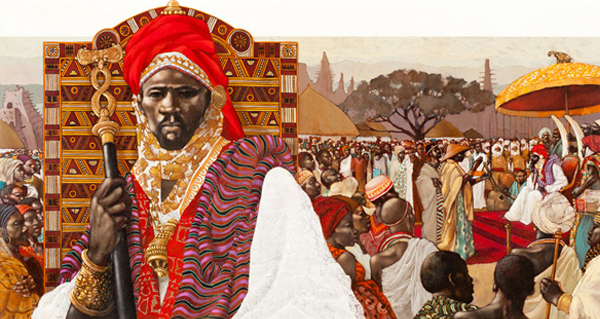Askiya Muhammad I
(?)–1528
Ruler of the Songhai Empire
Askiya Muhammad I was a statesman and military leader who ruled the Songhai Empire of West Africa for more than 30 years. During his reign Muhammad not only expanded the empire, he also reorganized it and transformed it into a Muslim kingdom. He is said to have been a nephew of the Songhai emperor Sunni Ali Ber. Soon after Sunni Ali's death, Muhammad attacked and defeated the new emperor, Sunni Baru. He then gave himself the title Askiya. Two years later Muhammad made a pilgrimage to Mecca, and when he returned in 1497 he made Islam the official religion of the Songhai Empire.
Muhammad conquered a wide area of northwestern Africa, and his empire's influence extended even farther. However, his main achievements were organizational. He divided the empire into provinces administered by governors and appointed separate ministers to direct financial affairs, justice, agriculture, and other areas of importance to the state. He also established a permanent army and a fleet of war canoes and placed them under the command of a general and an admiral. The well-run empire became a model for surrounding states.
Muhammad's children brought an end to his successful rule. They fought bitterly over the riches of his empire. In 1528 his eldest son killed Muhammad's new general in chief and exiled Muhammad to an island in the NIGER RIVER. When another son took power in 1537, he called his father back to the capital at Gao, where Muhammad died the following year. His tomb, an earthen pyramid topped by wooden spikes, still stands. It is considered one of the holiest Islamic sites in West Africa. (See also Islam in Africa, Sudanic Empires of Western Africa, Sunni Ali.)
